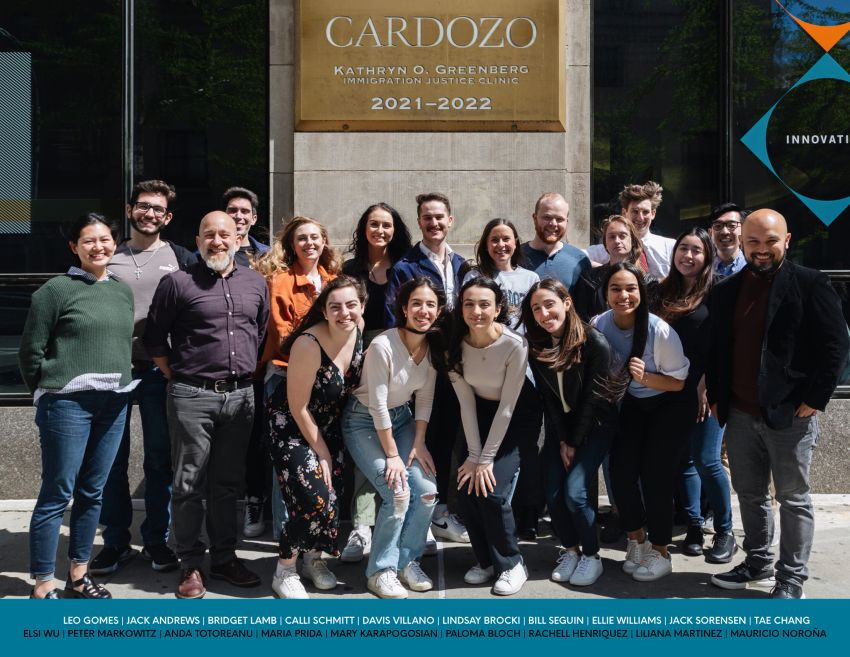
In October, the Kathryn O. Greenberg Immigration Justice Clinic (IJC) filed a lawsuit against Immigration and Customs Enforcement (ICE), alleging that the agency illegally kept more than $300 million in bond payments from tens of thousands of low-income immigrant families and U.S. citizens.
It started, per IJC Co-Director Professor Peter Markowitz, three years ago when the clinic was approached by former clinic student Carl Lipscombe ’13, a previous executive director of Envision Freedom Fund—the nation's largest nonprofit immigration bond fund. Lipscombe said he saw a problem with the immigration bond system.
According to the Associated Press, immigration bonds are set by ICE and immigration judges. They allow noncitizens who are facing removal proceedings to be released in the U.S. while their cases are decided in court. The online ICE handbook states that family and friends of those who were detained are entitled to get their money back after the immigration case is concluded. They may get their money back immediately or within 60 days. However, according to the lawsuit, ICE “regularly fails to return these funds, even when all conditions have been met and proceedings have concluded.”
Lipscombe and the members of the clinic worried about the tens of thousands of immigrant families who had posted their life savings to get their loved ones out of detention, as the average bail payment is $6,000 according to the lawsuit.
So, the clinic students got to work.
The 2021-2022 clinic class, comprised of Maria Pride, Aaron Friedman, Bill Seguin and Leo Gomes, investigated the inner workings of the failing immigration bond system and sketched out the options for a lawsuit to fix that system and return bond money to the immigrant families to which it belonged. The next group of clinic students in 2022-2023, featuring Chris Chuang, Frances Grail-Bingham, Maleah Bradley and Ellie Williams, waded through thousands of pages of FOIA disclosures, spent months analyzing bond data and ultimately formulated the legal theory that would eventually form the basis of a national class action lawsuit against ICE.
“There is no way this ever would have happened without the amazing work of these powerhouse former IJC students,” Markowitz said. “It has taken us three years and we have only reached the starting line. There is a long way to go but the potential impact of the collective work of these eight then-law students is simply remarkable. So, bravo to all of them, and to former IJC faculty member Mauricio Noroña. Most importantly, bravo to Carl Lipscombe. Carl tragically passed away this year, but he left behind an amazing legacy of activism and impact. We are all honored to be able to build on that legacy with the filing of this historic lawsuit.”
